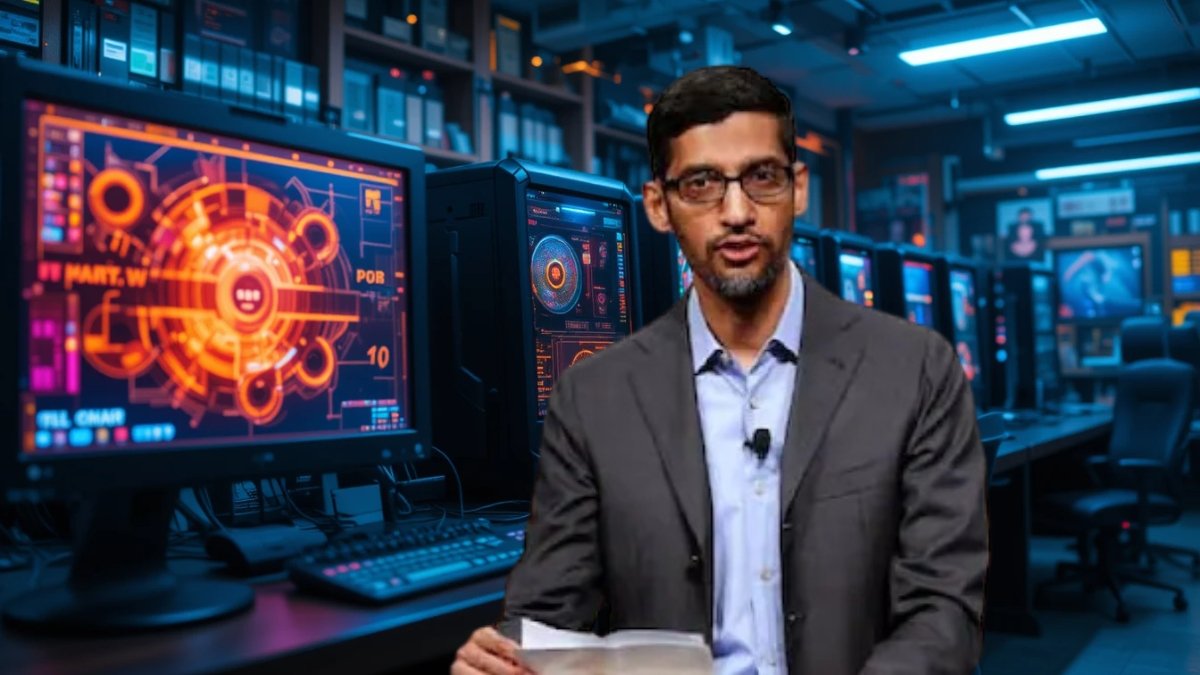
February 13, Dubai: Google CEO Sundar Pichai has stated that practical quantum computers are still at least five to ten years away, drawing a parallel between quantum computing’s current stage and artificial intelligence’s early progress in the 2010s. According to Bloomberg, despite the substantial investments made by governments and private corporations, the field remains largely in the research phase, with significant debate over when it will become commercially viable.
During his address at the World Governments Summit in Dubai, Pichai noted, “The quantum moment reminds me of where AI was in the 2010s when we were working on Google Brain and its early developments.” He emphasized that while promising breakthroughs have been achieved, widespread real-world applications are still years away.
Quantum computing has attracted billions in funding from both governmental and corporate sectors. Unlike traditional computers, which process data using binary digits (bits) that exist as either 0 or 1, quantum computers utilize qubits, which can represent multiple states simultaneously. This ability enables significantly more complex calculations, which could revolutionize areas such as materials science, climate modeling, and pharmaceuticals. However, the same power poses potential cybersecurity threats, as quantum computers could eventually break current encryption methods.
Despite its potential, quantum computing remains primarily confined to research laboratories, and experts are divided on how soon practical applications will emerge. Nvidia CEO Jensen Huang recently expressed skepticism, suggesting that “very useful” quantum computing is still decades away. His statement, according to Bloomberg, negatively impacted the stock prices of some quantum computing companies.
Breakthroughs and Challenges
Pichai highlighted Google’s recent milestone in quantum research, where an advanced quantum chip solved a complex problem in just five minutes, a calculation that, according to him, would take classical supercomputers longer than the entire lifespan of the universe. This breakthrough underscores quantum computing’s unique capabilities, particularly in simulating quantum states where conventional computers struggle.
However, translating these advances into commercial applications remains a significant challenge. Current quantum computers are highly sensitive and require extreme conditions, such as near absolute zero temperatures, to function. They also suffer from high error rates, and researchers are still working on refining error correction techniques to make computations reliable and scalable.
Governments and companies worldwide are heavily investing in efforts to overcome these hurdles. The U.S. government has allocated billions to quantum research through initiatives like the National Quantum Initiative Act, while China has developed large-scale quantum research centers and launched satellites for quantum communication experiments. Tech giants such as Google, IBM, and Microsoft, along with startups like QuEra, IonQ, and Quantinuum, are all racing to advance quantum hardware and software, including cloud-based access to early-stage quantum processors.
Varying Predictions on the Future of Quantum Computing
Pichai’s projection that practical quantum computing is at least a decade away aligns with similar predictions from other technology leaders, though there remains considerable debate:
- Jensen Huang (Nvidia CEO): Huang believes useful quantum computers are still 15 to 30 years away, stating that if someone predicts their arrival in 15 years, that would be considered optimistic, while 30 years would be on the conservative side.
- Bill Gates (Microsoft co-founder): Gates is more optimistic, suggesting that useful quantum computers could emerge within three to five years. He acknowledges that there is a possibility that Nvidia’s Huang might be wrong, and a breakthrough in quantum computing could happen sooner than expected.
- Hartmut Neven (Google’s Head of Quantum Computing): Neven predicts that real-world applications of quantum computing, particularly in materials science, medicine, and energy, could emerge within the next five years.
- Peter Barrett (Deep-tech investor, Playground Global): Barrett argues that quantum technology is progressing much faster than many anticipate. He cites recent developments such as Google’s Willow chip and PsiQuantum’s collaboration with pharmaceutical company Boehringer Ingelheim as evidence that practical applications are on the horizon.
- Matt Swayne (The Quantum Insider writer): Swayne, who has covered numerous predictions on quantum computing, suggests that the debate over when quantum computing will become truly practical is far from settled. He humorously notes that he will likely continue reporting on such predictions for years to come.
While quantum computing holds immense potential, it is still a developing field with many hurdles to overcome. Though some experts predict meaningful applications within the next five years, others caution that truly useful quantum computers might still be decades away. What remains clear is that the race to achieve commercial quantum computing is intensifying, with global investments fueling ongoing research and technological advancements. As breakthroughs continue, the world eagerly anticipates the moment when quantum computing transitions from research labs to real-world applications.
For more updates subscribe to questiqa.in and questiqa.com




